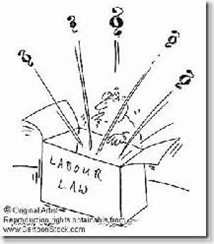Credits to Mr. CS Pradeep for this wonderful presentation
LET’S LEARN
IDR - Indian Depository Receipt
IDR – the concept:
Concept of IDR introduced in 2004 through Companies (issue of IDR) Rules.
What is an IDR?
An IDR is an instrument in the form of a depository receipt created by a Domestic Depository in
Objective of IDRs:
The objective of IDR is to enable foreign issuers to raise funds from the Indian Financial Markets.
Legal Framework for IDRs:
The following is the legal framework as regards IDRs:
a. Companies Act –
l General power to make rules (Section 642)
l Specific power to make rules (Section 605A)
b. Chapter VIA of the SEBI (DIP) Guidelines, 2000.
Eligibility criteria for IDR issuers:
As per the IDR rules an IDR issuer should satisfy the following:
l Pre-issue paid-up capital and free reserves of the issuer company are at least US$ 50 millions
l A minimum average market capitalization in its domestic country of at least US$100 millions during the last 3 years
l Trading record/history in
l Track record of distributable profits for at least 3 out of immediately preceding 5 years
l Equity shares offered in a financial year shall not exceed 25% of the post issue number of equity shares of the company
l Fulfill eligibility criteria laid down by SEBI
SEBI’s powers under the IDR Rules:
Policy – related:
l Specify additional eligibility criteria
l Specify additional disclosures
Operational:
l Give permission to come with IDR issue
l Call for further information
l Give observations on the offer document
Exercising the above powers, SEBI has laid down:
l Disclosures in offer documents
l Listing agreement
Other important points w.r.t. IDRs:
a. Automatic fungibility of IDRs is restricted by RBI.
b. NRIs and FIIs cannot purchase or possess IDRs unless special permission is taken from RBI.
c. Repatriating proceeds of IDR issues out of
d. Size of IDR issue not to be less than Rs.50Cr.
e. IDR issuers prohibited from issuing securities by home regulator not allowed.
New amendments made to Chapter VIA of DIP Guidelines and approved by the Board:
a. All investors can now invest in an IDR issue, as opposed to only QIBs earlier.
b. The minimum application size in an IDR issue has been reduced from Rs.2,00,000 to Rs.20,000/-.















